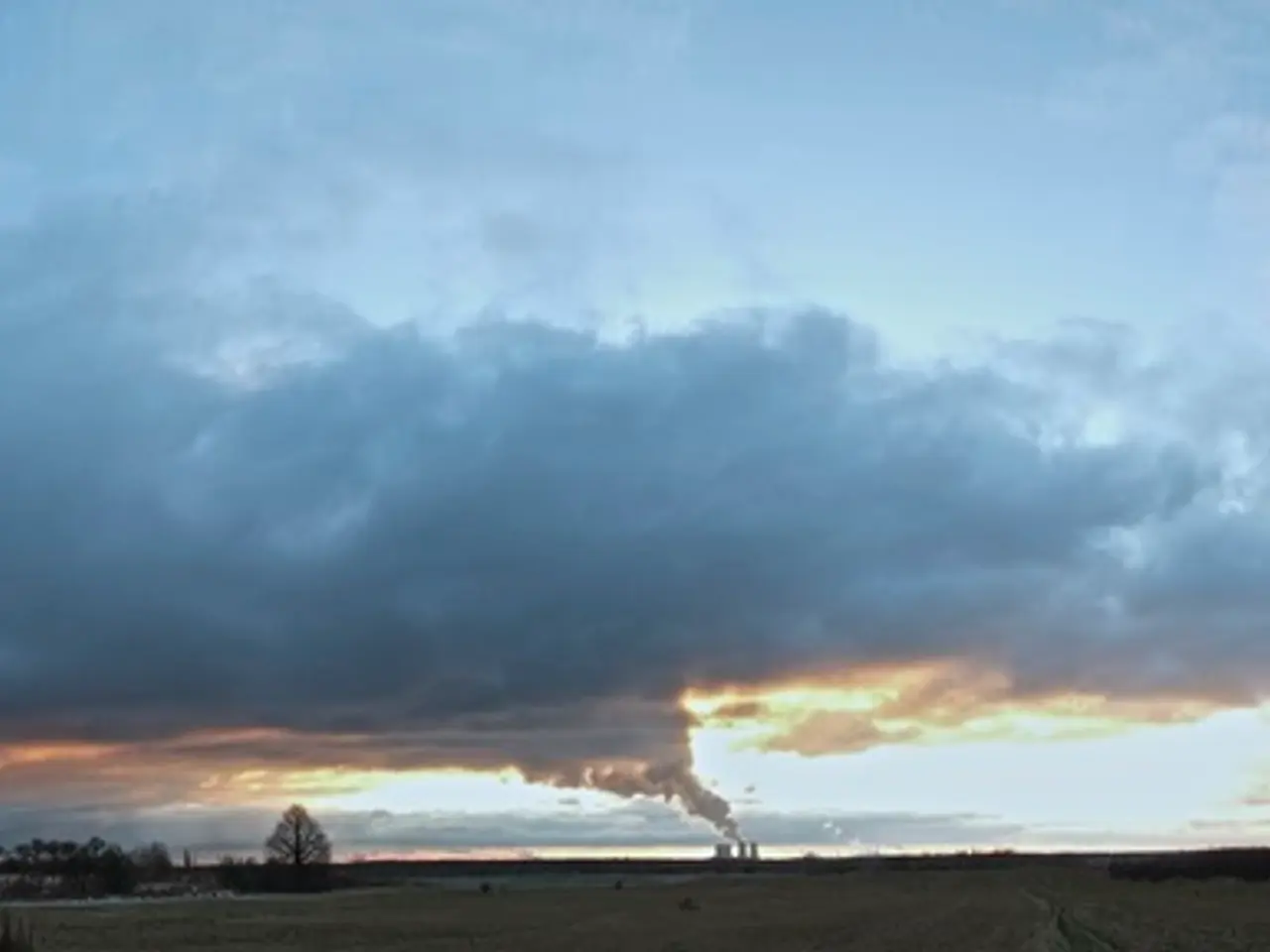EPA, under Trump's leadership, plans to scale back key measure of climate change initiatives
The Environmental Protection Agency (EPA) is facing criticism for its proposal to revoke the 2009 endangerment finding, a move that could significantly weaken national climate policy and regulatory efforts to combat climate change.
The EPA's arguments to reverse the endangerment finding are based on the impacts of greenhouse gas emissions on climate change and public health, as supported by decades of scientific conclusions from credible global sources. However, some experts accuse the EPA of "slicing and dicing the statute" to find loopholes, particularly in its approach to consider the benefits of CO2 emissions alongside their costs.
The head of the EPA, Lee Zeldin, unveiled the plan at a car dealership in Indiana, arguing that the 2009 finding failed to consider the benefits of CO2 emissions alongside their costs, a comparison that experts find problematic, as it is not an economic decision but a question of science.
If the endangerment finding is revoked, the EPA would lose its ability to use the Clean Air Act to regulate greenhouse gases. This would eliminate the EPA's authority to impose federal limits on emissions from sources like vehicles, power plants, and oil and gas operations, severely weakening national climate policy.
A reversal of the endangerment finding could have a chilling effect on many existing federal policies for greenhouse gas emissions. It could take years for the case to reach the Supreme Court, but once the EPA issues its final decision, the endangerment finding will be revoked.
Environmental groups have vowed legal challenges, emphasizing that this move abandons scientific consensus and public health protections. If the EPA under the Trump administration revokes the endangerment finding, it would effectively dismantle the legal basis for regulating greenhouse gas emissions under the Clean Air Act.
The current administration is forging ahead with a plan to revoke the scientific finding that has been the cornerstone of US climate action. This radical pivot in American climate and energy policy could lead to a patchwork of differing state policies rather than a cohesive national framework.
Experts warn that this move would represent a radical pivot in American climate and energy policy. If the best tool for addressing greenhouse gas emissions at the federal level is gone, as some experts suggest, it could favor fossil fuel industries by removing regulatory constraints, encouraging increased emissions. However, it would also undermine efforts to address growing climate disasters, which threaten public health, safety, and economic stability.
The EPA would retain authority to regulate other pollutants such as sulfur dioxide, mercury, and coal ash from coal-fired power plants, even if the endangerment finding is reversed. However, many states are working to address pollution from cars and power plants under state law, regardless of the endangerment finding.
The plan involves the rollback of the Obama-era 2009 endangerment finding, grounded in the Supreme Court case Massachusetts v. EPA. The Supreme Court, with a six-to-three conservative majority, has repeatedly chipped away at federal climate regulations in recent years, raising concerns about the court's potential response to the EPA's proposal.
Climate change continues to intensify across the US, leading to extreme heat, wildfires, floods, and billion-dollar weather disasters. The EPA's proposal to revoke the endangerment finding is likely to be met with extensive litigation, possibly reaching the Supreme Court again. With the public comment period open until September, it remains to be seen how this contentious issue will unfold.
[1] New York Times: "Trump Administration Plans to Roll Back Obama-Era Climate Rules" [2] The Washington Post: "Trump administration moves to roll back Obama-era climate regulations" [3] EPA: "Endangerment Finding" [4] CNN: "Trump administration moves to roll back Obama-era climate regulations" [5] The Guardian: "Trump administration plans to roll back Obama-era climate rules"
- The Environmental Protection Agency's proposal to revoke the 2009 endangerment finding, a cornerstone of US climate action, could significantly weaken national climate policy and regulatory efforts to combat climate change, as supported by decades of scientific conclusions.
- if the endangerment finding is revoked, the EPA would lose its ability to use the Clean Air Act to regulate greenhouse gases, eliminating the EPA's authority to impose federal limits on emissions from sources like vehicles, power plants, and oil and gas operations.
- Environmental groups have vowed legal challenges, emphasizing that a reversal of the endangerment finding abandons scientific consensus and public health protections, potentially dismantling the legal basis for regulating greenhouse gas emissions under the Clean Air Act.
- The EPA's proposal to revoke the endangerment finding is likely to be met with extensive litigation, possibly reaching the Supreme Court again, as the rollback of the Obama-era finding has been subject to scrutiny and criticism from various media outlets, including The New York Times, The Washington Post, CNN, and The Guardian.







